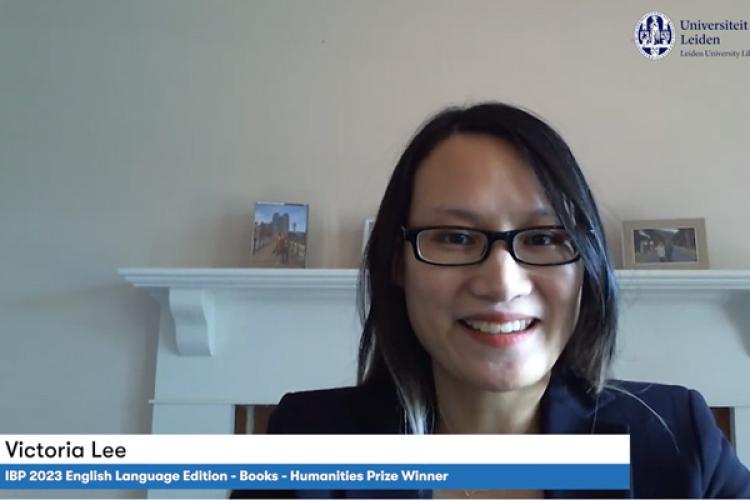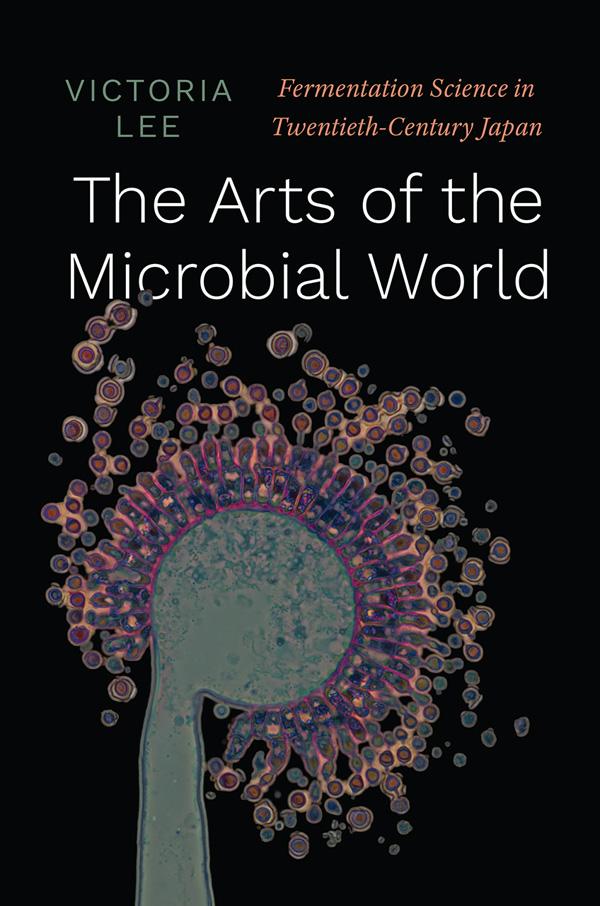
OHIO faculty member's look at the mold behind soy sauce as Japan's economic driver wins international best book award

Dr. Victoria Lee's book describing how the science of fermentation — and the microbes at the heart of soy sauce and miso soup — helped drive Japan's economy into the 21st century has won the 2023 International Convention of Asia Scholars Book Prize for the Best Book in the Humanities.
Her book, "The Arts of the Microbial World: Fermentation Science in Twentieth-Century Japan," examines how these iconic Japanese foods as well as drinks such as shochu are all made possible with the help of a microorganism called "koji."
Today, that tiny mold, known as Japan's national mold, drives a huge food industry and finds its way into the creations of top chefs. But at the turn of the 20th century, it helped propel industrialization in Japan and catapult the country into prominence on the world economic and scientific stage.
"The phenomena of fermentation not only played a key role in the development of food and medicine, they also helped drive new manufacturing technologies and scientific developments. Today fermentation remains a key ingredient in Japanese scientific culture," said Lee, associate professor of history in the College of Arts and Sciences, where she teaches classes on the history of modern science and technology and modern Japan, with a focus on the role of Japan in the 20th and 21st centuries.

Lee’s book documents how Japanese scientists and skilled workers sought to use the microbe’s natural processes to create new products, from soy sauce mold starters to MSG, vitamins to statins. In traditional brewing houses as well as in the food, fine chemical, and pharmaceutical industries across Japan, they showcased their ability to harness the diversity of the microbial world.
"By 1980, Japan had emerged as a global technological and economic power thanks to the role of indigenous techniques coupled with modern science. That small-scale, traditional knowledge of microbes passed down through generations actually was the heart of some of Japan’s most prominent technological breakthroughs in the global economy," Lee said.
The biennial International Convention of Asia Scholars (ICAS) Book Prize, hosted by the International Institute for Asian Studies in Leiden, the Netherlands, was established in 2003 to “bring a focus to academic publications on Asia; to increase their worldwide visibility and to encourage a further interest in the world of Asian Studies,” according to the ICAS website.
In the award announcement, the reading committee explained that Lee’s book, which was chosen out of nearly 200 submissions, “encapsulates Asia within a global context now” and contributes to “the process of crafting a sustainable global future.” Part of the prize money consists of a travel grant to Surabaya, Indonesia in July 2024 to collect the award.
Before coming to Athens in 2016, Lee was a postdoctoral fellow at the Max Planck Institute for the History of Science in Berlin, Germany. She was subsequently a 2020–21 fellow at the Institut d'études avancées de Paris, where she organized the public event "Our Microbial Lives: A Forum Against Eradication."
Lee has authored articles in a number of journals in the history of science and technology, one of which was awarded the quadrennial Zhu Kezhen award, and has reviewed for outlets including the Los Angeles Review of Books. In 2021 she received Ohio University’s Arts and Sciences Outstanding Faculty Research, Scholarship, and Creative Activity Award. She is a native of Toronto, Ontario, Canada.
